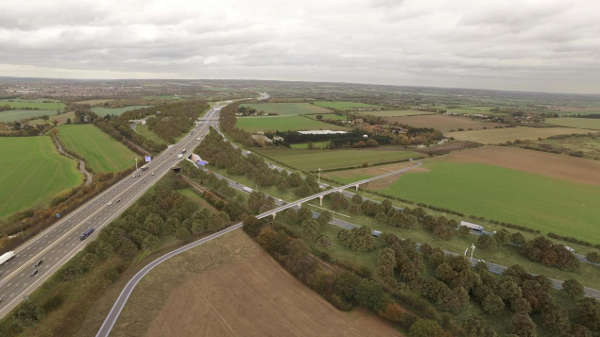The Government’s infrastructure advisers have called for measures to reduce traffic in cities, including congestion charging and workplace parking levies, but warned that they should not be put in place until there is a viable public transport alternative.
In its Second National Infrastructure Assessment (NIA), the National Infrastructure Commission (NIC) argued the country’s largest cities are likely to require more capacity on their public transport networks to support economic growth over the next 20 to 30 years, even if home and hybrid working remain above pre-pandemic levels.
It said government should invest £22bn in the largest regional English cities and that Birmingham, Bristol, Leeds and Manchester, which face the biggest transport capacity constraints, should be the initial priorities for investment in mass transit systems but should also contribute to the costs.
The NIC added that cities will also need to reduce car journeys into congested city centres, especially at peak times, and noted that measures like congestion charging and workplace parking levies can free up road capacity for more public transport.
But it warned: ‘The sequencing of these transport changes will be important as reducing trips by car where there is no viable public transport alternative risks hindering, not supporting, growth and having negative social impacts.'

The Lower Thames Crossing is a major Road Scheme in the South East of England
The NIC said maintenance of existing national road and rail networks should be prioritised but that there should also be a national integrated strategy for interurban transport, including a pipeline of strategic improvements to the road and rail networks over the next 30 years.
In particular, it said government should take forward a programme of enhancements to the road network that target underperforming sections, adding that it is not clear that this prioritisation happens at present. The NIC noted that in the second Road Investment Strategy, only 22% of funding allocated was in the North and the Midlands.
The NIC was highly critical of the recent decision to scrap HS2 between Birmingham and Manchester, which, alongside Northern Powerhouse Rail and other changes, ‘would have improved significantly’ north-south and east-west rail connectivity and freed up capacity on the existing rail network.
It noted that the NIA had been undertaken on the basis of the delivery of this long-term rail plan but that the decision to curtail HS2 ‘leaves a major gap in the UK’s rail strategy around which a number of cities have based their economic growth plans’.
The NIC said the exact scope and delivery schedule for proposed new rail schemes funded with the money saved are not yet clear and offered to support the Government in drawing up a comprehensive, long-term and fully-costed plan that sets out how rail improvements will address the capacity and connectivity challenges facing city regions in the North and Midlands.
NIC chair Sir John Armitt said: ‘We had an integrated plan a few weeks ago, we've now lost that. There are a number of projects, some of which already existed, some new ones. Let's get those properly turned into a well-thought-through, integrated plan for the future.’